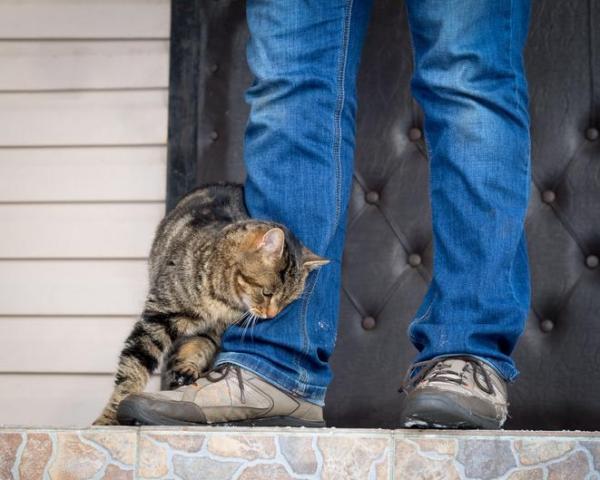This gesture, at first glance harmless and affectionate , is in reality rich in meaning . Between territorial marking , request for attention or even sign of stress , understanding why your cat acts this way will help you better respond to its needs .
So what does this friction really mean?
1.A sign of affection and trust

When your cat rubs against you , it is a way of telling you that he appreciates you and that he considers you as a member of his trusted circle . This gesture is a true declaration of feline friendship !
For what ?
Cats have glands located on their heads , around their cheeks and chins , that release pheromones . By rubbing against you , they deposit these chemicals that create a “familiar scent” , thus strengthening the bond between you .
Good to know
This behavior is inherited from their wild ancestors , who rubbed against each other to strengthen their social bonds and identify members of their group .
2.A discreet territorial marking
Your cat “smells” you , as if to say, “This human is mine .” He does this to mark his territory , especially if there are other cats around .
For what ?
By leaving his scent on you , he distinguishes you from others and sends a clear message to other felines : “I am at home here” .
Funny anecdote
If you come back from a place where there was another cat , your feline may rub even more intensely to reaffirm its territory and re-establish “its” scent on you !
3.A request for attention (and cuddles!)

A cat rubbing against you may also simply be asking for a moment of attention . It is an invitation to play, to be petted or even to a good meal .
For what ?
This behavior is often accompanied by:
- Soft meows ,
- Intense looks ,
- Little affectionate head butts .
The right reflex
Take a few minutes to interact with him , whether it’s to play or offer him a moment of tenderness . This will strengthen your bond !
4.A response to stress or environmental change
see continuation on next page
